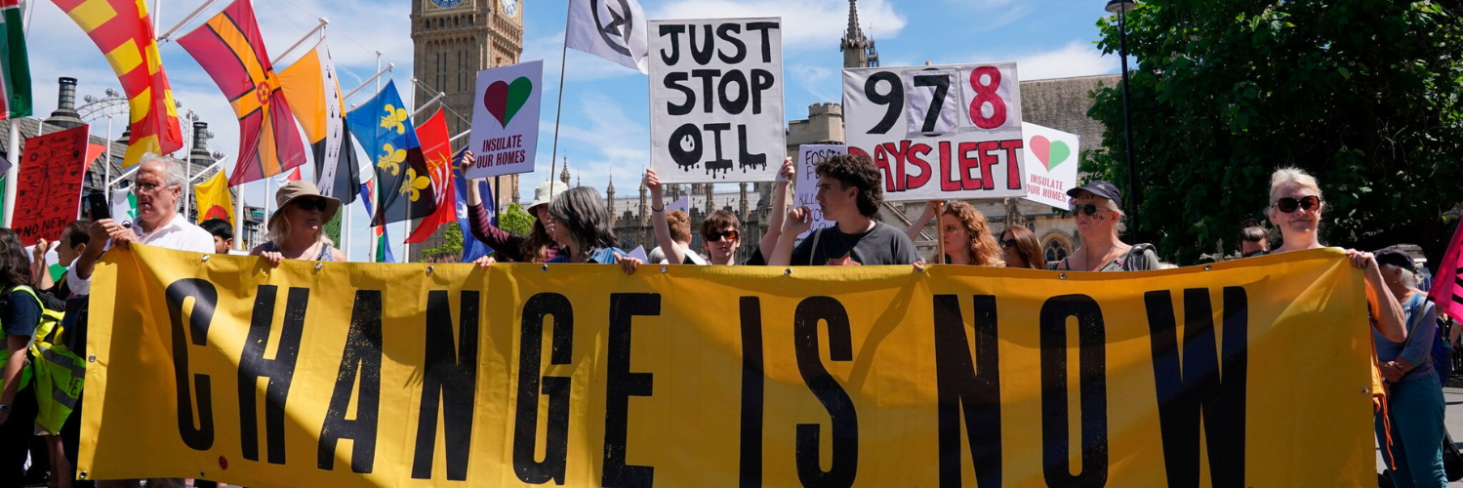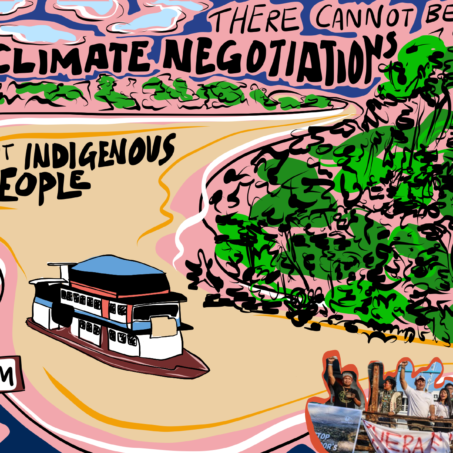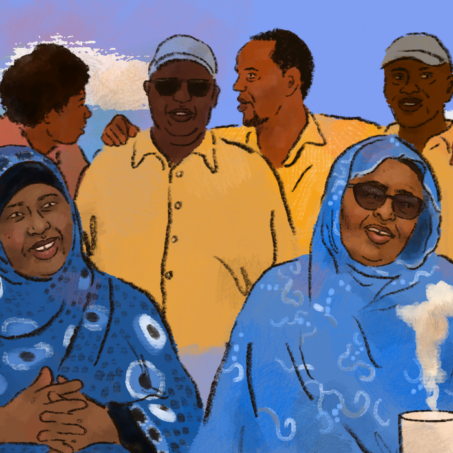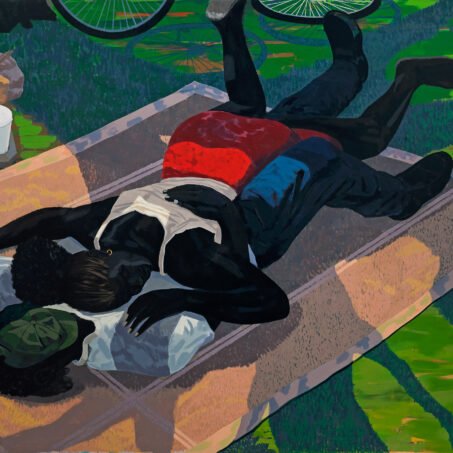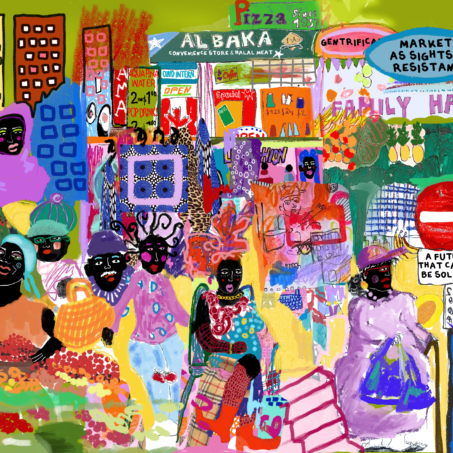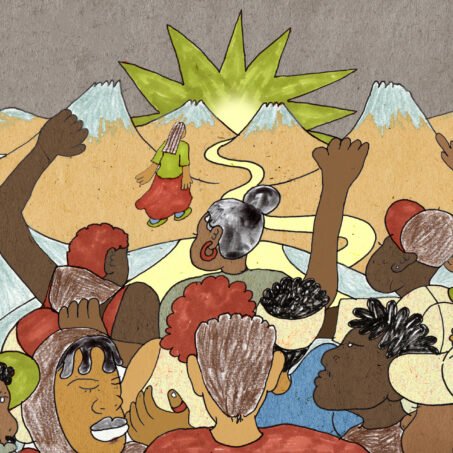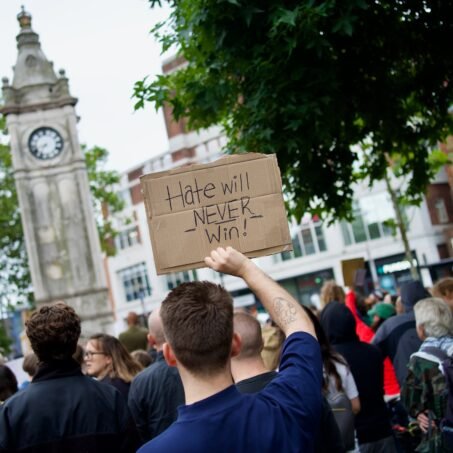When a country imprisons those who ring the alarm rather than those who start the fire, we should all be worried.
On 18th July, five Just Stop Oil activists were found guilty of conspiring to block the M25 and sentenced to multiple years in prison, in what is thought to be the longest sentencing for non-violent protest in British history.
Daniel Shaw, Louise Lancaster, Lucia Whittaker De Abreu and Cressida Gethin were each sentenced to four years in prison, while Roger Hallam, co-founder of Just Stop Oil and Extinction Rebellion, was sentenced to five years.
When I spoke to Just Stop Oil spokesman Grahame Buss earlier this week, I was struck by his calm and reflective manner, even when talking about activist repression and climate breakdown. “We have a government that is failing to protect the public, failing to do what it needs to do,” he tells me. “Who should be in the dock? It’s the oil companies, with vested interests, and the banks and insurance companies that support and protect them.”
Grahame knows more than most about the inner workings of oil companies. Before getting involved in climate activism, he worked as a Principal Scientist for Shell. He told me that he tried to make a difference from inside the company, but to no avail. “ That outcome now seems so obvious to me that I marvel at my naivety,” he admits. After leaving Shell, he felt despair at where the planet was headed. He joined Extinction Rebellion and later Just Stop Oil.
We should all be outraged by this verdict
Just Stop Oil brought the M25 to a standstill over four days in November 2022. 45 protesters took part, but only five of the organisers were on trial. The sentencing was not to do with the M25 demonstration itself, but rather a Zoom call in which the protest was organised. This came to light after sections of the call were leaked by a journalist from The Sun, pretending to be an activist.
In his sentencing, Judge Hehir took into account not only the harm caused “but also the harm you intended to cause”. The judge also repeatedly referred to the protesters as “troublemakers.”
The sentencing was met with approval by the right-wing press, but prompted condemnation and outrage from voices both in Britain and beyond.
Michel Forst, the UN special rapporteur for environmental defenders emphasised in a statement: “Rulings like today’s set a very dangerous precedent, not just for environmental protest but any form of peaceful protest that may, at one point or another, not align with the interests of the government of the day.”
Grahame was also dismayed by the judge’s actions. “He’s so steeped in the law that he’s forgotten what justice is.”
It’s getting harder to protest in the UK
The arrest and imprisonment of the Just Stop Oil activists is a stark reminder that the environment for activists in Britain today is risky and restrictive. Two sinister laws from the previous Conservative government – the Public Order Act 2023 and the Police, Crime, Sentencing and Courts Act 2022 – have constrained activists and empowered police to punish those engaging in non-violent civil disobedience, the kind that generated so many of the civil liberties British politicians love to praise.
The Acts give the police a concerning amount of power to interpret what is deemed a public nuisance and to arrest accordingly. The previous government defined “disruption” as anything that causes “more than minor” disturbances. It doesn’t take a legal scholar to notice that this definition is both ambiguous and flimsy. The fact that what constitutes a criminal activity is even open to police interpretation is deeply troubling.
Whilst the government has always claimed that citizens’ right to protest was protected, the Police Act of 2022 created a new offence of “intentionally or recklessly causing public nuisance”, with a penalty of up to 10 years imprisonment. It’s dangerous to be an activist in Britain today.
There is, however, potentially some good news.
In its judgement published in May, the High Court ruled that the Government acted unlawfully in passing the Public Order Act, giving police ‘almost unlimited’ powers when policing protests. The court ordered the law to be quashed following a legal challenge from civil liberties organisation, Liberty.
The future of the legislation is currently uncertain. How much of the Tories’ legacy the new government is willing to quietly inherit remains to be seen.
Silencing in court
The trial of the five Just Stop Oil protesters is a clear case study in how the new legal framework works against activists.
New laws, chiefly the removal of the defence of proportionality and the defence of lawful excuse, effectively helped silence the defendants. In essence, climate protesters can no longer explain the rationale behind their activism to a jury.
As laid out by Graeme Hayes and Steven Cammiss, these measures, alongside the Crown Protection Service (CPS) bringing in more serious charges against protesters than ever used to be the case, means defendants are facing a harder uphill climb than ever before.
The Just Stop Oil activists were victims of these changes.

Join our mailing list
Sign up for shado's picks of the week! Dropping in your inbox every Friday, we share news from inside shado + out, plus job listings, event recommendations and actions ✊
Sign up for shado's picks of the week! Dropping in your inbox every Friday, we share news from inside shado + out, plus job listings, event recommendations and actions ✊
The defendants asked if they could bring Professor Bill McGuire, Emeritus Professor of Geophysical & Climate Hazards at University College London, to explain to the court the seriousness of the climate breakdown as a justification for actions. The Judge refused on the grounds that as McGuire had previously tweeted about the climate crisis, and that he was therefore an activist and his evidence was inadmissible.
A climate of fear
This put me in mind of something Arundhati Roy wrote in an affidavit in 2001 to the Supreme Court of India. She was being accused of committing criminal contempt of court by organising a demonstration outside the Supreme Court gates in protest of the Sardar Sarovar Dam construction on the Narmada River. She wrote that fear of legal harassment would: “create a situation in which even before a writer puts pen to paper, she will have to anticipate what the court might think of her work. It will induce a sort of enforced, fearful self-censorship. It would be bad for law, worse for literature, and sad for the world of art and beauty.”
In the context of activist repression, it’s likely we’ll see more and more environmental protesters appearing in our docks. If even the most distinguished scientists aren’t permitted to speak in court based on what they’ve written, the culture of fear and self-censorship will encroach upon the British consciousness. Silencing dissent is nothing new. But governments have known for centuries that the most effective way to censor a population is to get them to censor themselves.
The UK is now the lowest-ranking country in Western Europe concerning freedom of expression. In this time of ecological catastrophe and legal persecution, we need the independent voice of writers and scientists more than ever.
Both the Police and the Public Order Acts were vague when it came to what was and wasn’t permissible on a demonstration. In this new climate, many people are increasingly worried about protesting, uncertain about what counts as legal protest and what might run the risk of imprisonment. And not without reason. More than 7,000 climate protesters have been arrested in the UK since 2019.
They’re scared of civil disobedience because it works
Grahame is determined to continue campaigning, even in the context of the UK’s anti-protest laws. “Part of the reason why the governments have become so draconian – why they’ve introduced these laws – is because [civil disobedience] works. If it didn’t work, they wouldn’t do it,” he says.
Non-violent civil disobedience is a “deliberate use of power to effect the most change with the least harm,” according to American scholar Howard Zinn. He wrote this in 1966, deep in the context of the Civil Rights Movement, probably the most famous example of civil disobedience in action.
I recently re-read Martin Luther King Jr’s “Letter from a Birmingham Jail” from 1963. Describing the use of non-violent civil resistance in a segregated United States, King contextualised the movement within a society that was fearful of their tactics. He described “the white moderate, who is more devoted to ‘order’ than to justice; who prefers a negative peace which is the absence of tension to a positive peace which is the presence of justice; who constantly says: ‘I agree with you in the goal you seek, but I cannot agree with your methods of direct action.’”
The well-worn criticism of Just Stop Oil – from MPs and the right-wing press – is that their methods alienate people from their cause. Grahame knows the fallacy of this argument; ‘comfortable’ protest rarely works. “They don’t ban people signing petitions, they don’t ban people writing to their MP, because these things don’t work. They only want to stop it if it works.”
What kind of rights do we value?
Imprisoning five peaceful activists should send shockwaves across the nation. Let there be no doubt: a carceral state harms us all. A culture of fear infects our thinking before we even open our mouths to speak. Hemingway once wrote that a person goes bankrupt “gradually, then suddenly.” The same applies to losing our civil liberties. What we are seeing now is the gradual erosion rights and liberties – for all of us. Even if most people don’t realise it or claim not to care, weakening our right to protest government policy should cause outrage in all of us. We must speak up before we lose even more.
There’s something else we should do. We need to shift the public conversation towards collective rights: the right of all of us to live on a healthy, interdependent, functioning planet. It’s easy to dismiss the public who are annoyed by Just Stop Oil as selfish individuals failing to see the bigger picture, more concerned with their right to drive their cars uninterrupted than with the collapse of society as we know it. But we’re all embedded in the same broken system that has led to climate breakdown: a system that convinces us to worry more about getting to work on time than whether our grandchildren will get to live on a habitable earth.
As scary as it seems, perhaps we can find hope and inspiration from last week’s events. A country that imprisons peaceful activists may be severe, but the very act of silencing protesters is proof that the state is fearful of their methods and the truths they have to tell. We cannot stay silent about the truth.
Daniel, Louise, Lucia, Cressida and Roger are in prison because they prioritised the collective security of all of us over the profits of private energy companies. Whilst their critics call their actions selfish, the five activists’ actions and motives were fundamentally selfless. They are in prison for us. We should honour them by continuing to peacefully protest for a safer, equitable and liveable world.
What can you do?
Do:
- The Force of Non-Violence by Judith Butler
- Why Civil Resistance Works: The Strategic Logic of Nonviolent Conflict by Erica Chenoweth and Maria Stephan
- Disobey!: A Philosophy of Resistance by Frédéric Gros
Listen:

